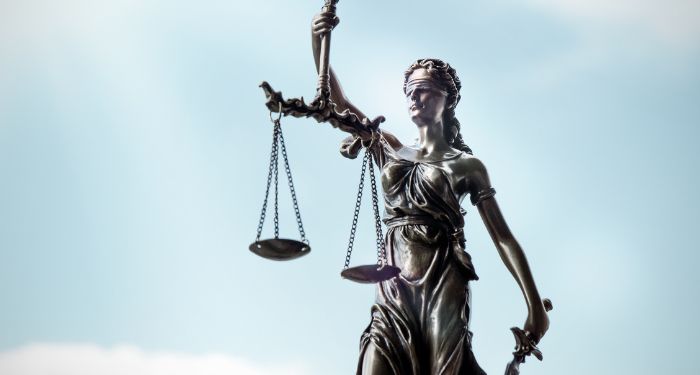970x125
This content contains affiliate links. When you buy through these links, we may earn an affiliate commission.
As more book bans and attacks on the First Amendment rights of American citizens continue, so, too, do the lawsuits aimed at stopping these actions. Today, the American Civil Liberties Union of South Carolina filed a lawsuit against State Education Superintendent Ellen Weaver over unjust book bans due to Regulation 43-170 and a 2025 classroom censorship memo. It was filed on behalf of the South Carolina Association of School Librarians and three public school students under the age of 18. The filing can be read in full here.
Regulation 43-170 became law in June 2024. It bans all materials in public kindergarten through 12th grade classrooms if that material contains any “sexual conduct.” The regulation has led to the banning of 22 books across the state, putting South Carolina at the top of the list for most state-sanctioned book bans. The lawsuit challenges the Regulation’s constitutionality.
The Regulation does not utilize the Miller Test–the Supreme Court’s three-prong assessment of whether or not something is obscene–in making its determination of whether or not material contains “sexual conduct.” The vagueness in the regulation is its feature, as this allows for broad interpretation and wide, sloppy application.
A second piece of the lawsuit challenges the constitutionality of a memo penned and distributed by Weaver on March 14, 2025. The memo bans 14 concepts from being discussed in SC Department of Education materials, including “implicit bias,” “restorative justice,” “cisgender,” and “social-emotional learning.”
“The confusion and fear stemming from Regulation 43-170 and Ellen Weaver’s memorandum have been overwhelming,” said Dylan Rhyne, a high school senior in the Charleston County School District and plaintiff in the lawsuit. “I hope that by taking action now, we can restore the safe and welcoming school environment I once knew and make things even better for those to come.”
Literary Activism
News you can use plus tips and tools for the fight against censorship and other bookish activism!
It’s not only the removal of books that have caused difficulty in South Carolina public schools. So, too, has the fear of what targets may come next. Among the actions that have happened in the state as a result of the Regulation include:
- The end of classroom libraries in some schools, as a result of worry that materials included there may be outside of what the state deems appropriate;
- Quiet and silent censorship among school librarians who are electing not to purchase new fiction titles for their collection and/or are preemptively removing titles;
- The addition of 9 restricted titles in Beaufort County Public Schools so students need permission slips to access books like The Kite Runner and The Bluest Eye, titles routinely part of Advanced Placement curriculum;
- The removal of access to county library digital collections by public schools for fear of potential access to titles with “sexual conduct,” as in Fort Mills.
“The “need” for this regulation was manufactured by SC Superintendent of Education Ellen Weaver (who has direct, public ties to Moms for Liberty) under the guise of an absence of a ‘uniform process for local school boards to review and hold public hearings on complaints raised within its district,’” explained Jamie Gregory, immediate past president of the South Carolina Association of School Librarians in an interview at Book Riot earlier this year. “In other words, supporters of the regulation didn’t like that local school districts have control over which instructional materials are available in school libraries, so they dubbed this local control as “confusing” since districts may have different local policies and procedures. It’s important to note that the impetus for this regulation originated with Ellen Weaver and her outside legal counsel with ties to the Federalist Society (who was paid over $40,000 of taxpayer money), not the SC State Board of Education.”
This is not the first lawsuit in the state of South Carolina over book bans. The ACLU of South Carolina also sued Greenville County over the banning and restriction of LGBTQ+ books for minors in the county’s public library earlier this year. As of writing, 22 books have been permanently banned from all South Carolina public schools. They are:
Crank by Ellen Hopkins was not banned, but it requires parental permission before any students may access it in their school library.
“Censorship in schools limits students’ ability to think critically and engage with diverse perspectives. K-12 students deserve intellectual freedom that empowers them to explore ideas, question assumptions, and develop critical thinking skills,” said Tenley Middleton, President of the South Carolina Association of School Librarians. “Leadership from the South Carolina Association of School Librarians has persistently sought to engage with the Department of Education and the State Board regarding Regulation 43-170 — to no avail. We stand with the ACLU of South Carolina in denouncing censorship and championing intellectual freedom.”
Read a full interview with Tenley Middleton and Jamie Gregory, both members of the leadership team of the South Carolina Association of School Librarians. They discuss the on-the-ground advocacy happening across their state and offer critical insight into the ways that the state’s Regulation has harmed access to materials in public schools for students and done tremendous damage to the library profession.
This lawsuit is another example of testing the court’s interpretation of the First Amendment Rights of library users. Last week, a judge ruled that library users and authors do not have First Amendment Rights when it comes to public school and public libraries. That ruling pulled heavily from a decision in the Fifth Circuit from earlier this year, which established no First Amendment Rights for users in public libraries in Louisiana, Mississippi, and Texas. These two cases contradict the prevailing Island Trees School District vs. Pico Supreme Court ruling from 1982, which which held that public school libraries are places for voluntary inquiry and dissemination of information and ideas.



